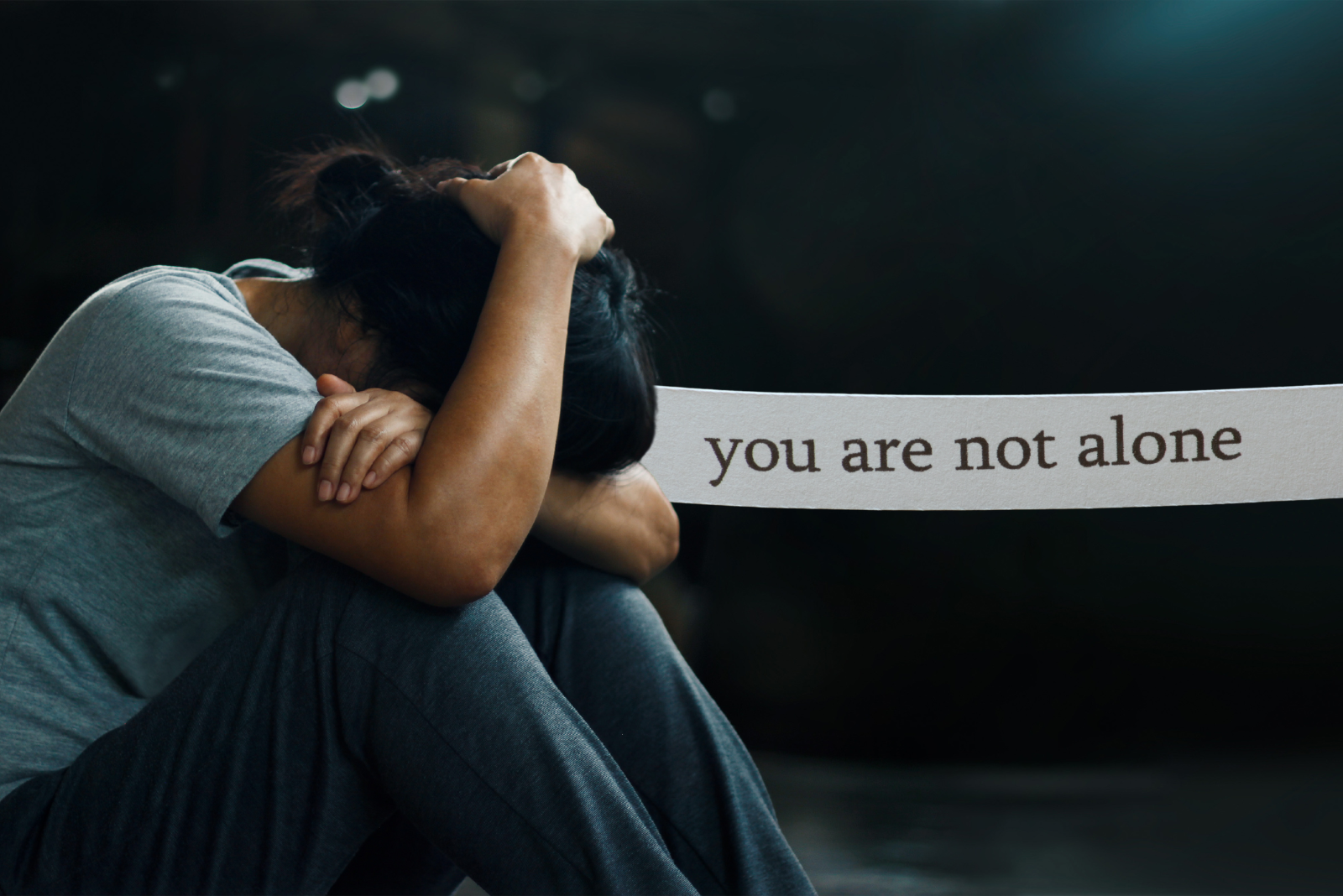
Mental health challenges such as PTSD, anxiety, and depression can feel overwhelming, affecting your ability to enjoy life and function day-to-day. However, it’s important to remember that you are not alone and that there are effective strategies and resources available to help you manage these conditions.
In this blog, we’ll explore specific coping mechanisms tailored to each of these mental health issues. By incorporating both conventional and alternative strategies, you can create a personalized plan that works for you. For those interested in holistic approaches, trigeminal nerve stimulation offers a promising, drug-free solution to managing symptoms and improving overall well-being.
Additionally, check out this insightful video that delves deeper into coping strategies for PTSD, anxiety, and depression:
If You’re Suffering from PTSD

Post-Traumatic Stress Disorder (PTSD) is a mental health condition that can develop after experiencing or witnessing a traumatic event. It can significantly impact your mental and emotional well-being, leading to a variety of symptoms that can persist if not properly addressed.
Signs of PTSD
Recognizing the signs of PTSD is the first step toward seeking help. Here are some common symptoms:
- Intrusive memories: Recurrent, unwanted memories of the traumatic event.
- Flashbacks: Reliving the traumatic event as if it were happening again.
- Avoidance: Trying to avoid thinking about the event or places that remind you of it.
- Negative changes in mood: Feeling hopeless, detached, or experiencing a lack of interest in activities you once enjoyed.
For a more detailed overview, refer to this resource on PTSD symptoms.
Coping Mechanisms for PTSD
Effective coping strategies can make a significant difference in managing PTSD:
- Grounding techniques: These are practices that help you stay connected to the present moment, such as deep breathing, sensory awareness, or focusing on a physical object in your environment.
- Talk therapy: Therapies like Cognitive Behavioral Therapy (CBT) and Eye Movement Desensitization and Reprocessing (EMDR) are highly effective for processing trauma and reducing PTSD symptoms.
- Physical activity: Exercise, particularly activities that engage the whole body, can help discharge pent-up energy and reduce stress.
- Social support: Lean on your support system—whether friends, family or a support group—to share your feelings and experiences in a safe environment. Engaging in activities that give back to others can also be a powerful way to improve mental health.
If You’re Suffering from Anxiety

Anxiety is more than just occasional worry or stress. It can become a chronic condition that interferes with your daily life, making it difficult to perform even simple tasks.
Signs of Anxiety
Anxiety manifests in a variety of ways, and recognizing the symptoms can help you take control:
- Persistent worry: Feeling anxious or nervous most of the time, even without a clear cause.
- Physical symptoms: Experiencing rapid heartbeat, sweating, trembling, or gastrointestinal issues.
- Restlessness: Feeling constantly on edge or unable to relax.
- Sleep disturbances: Difficulty falling asleep, staying asleep, or experiencing restless sleep.
For more information, check out this guide to recognizing anxiety.
Coping Mechanisms for Anxiety
To manage anxiety effectively, consider incorporating these strategies into your routine:
- Breathing exercises: Deep breathing exercises, such as diaphragmatic breathing, can help calm your nervous system and reduce feelings of anxiety.
- Routine management: Establishing a daily routine can provide structure and reduce feelings of uncertainty that often accompany anxiety.
- Progressive muscle relaxation: This technique involves tensing and then slowly relaxing each muscle group in your body, which can help reduce physical symptoms of anxiety.
- Mindfulness and meditation: Regular mindfulness practice can help you break the cycle of worry and bring your attention back to the present moment, reducing overall anxiety levels.
If You’re Suffering from Depression

Depression is a serious mood disorder that goes beyond temporary feelings of sadness. It affects how you feel, think, and handle daily activities and can persist for weeks, months, or even years without proper treatment.
Signs of Depression
Depression can manifest in many forms, and recognizing its signs is critical for seeking help:
- Persistent sadness: Experiencing a deep, unshakable sadness or emptiness that doesn’t go away.
- Loss of interest: No longer finding pleasure in activities or hobbies you once enjoyed.
- Fatigue and low energy: Feeling tired all the time, even after adequate sleep.
- Changes in appetite or weight: Experiencing significant weight loss or gain unrelated to dieting.
For a deeper understanding of depression, explore this comprehensive overview.
Coping Mechanisms for Depression
Consider these methods to manage depression:
- Regular physical activity: Exercise is a powerful mood booster and can help alleviate some of the symptoms of depression. Aim for at least 30 minutes of moderate exercise most days.
- Healthy diet: Nutrition plays a crucial role in mental health. Eating a balanced diet rich in whole foods, such as fruits, vegetables, and lean proteins, can help improve mood and energy levels.
- Sleep hygiene: Establishing a regular sleep routine can help improve your mood and overall well-being. Try to go to bed and wake up at the same time every day, and create a calming bedtime routine to help you wind down.
- Therapy and counseling: Talking to a mental health professional can provide you with the support and tools you need to manage your symptoms and work through difficult emotions.
Alternative Coping Actions to Take for PTSD, Anxiety, or Depression
In addition to the conventional strategies mentioned, there are several alternative approaches that may offer relief from PTSD, anxiety, and depression. These methods can be especially helpful for those looking to explore holistic and non-pharmacological options.
- Natural remedies: Consider supplements like omega-3 fatty acids, St. John’s Wort, or CBD oil, which have shown promise in managing mental health symptoms. Always consult with a healthcare professional before starting any new supplement regimen.
- Mind-body practices: Integrative practices such as yoga, tai chi, and acupuncture can help balance the mind and body, reducing stress and improving mental health. These practices are also excellent for promoting relaxation and enhancing overall well-being.
- Microcurrent therapy: This innovative approach uses low-level electrical currents to stimulate the body’s natural healing processes. Microcurrent therapy has been shown to be effective in reducing symptoms of PTSD, anxiety, and depression by promoting cellular repair and enhancing overall well-being.
Taking Action for Your Mental Health

Coping with PTSD, anxiety, or depression can be challenging, but it’s important to remember that there are many strategies available to help you manage your symptoms and improve your quality of life. By combining conventional therapies with alternative approaches, such as natural remedies and microcurrent therapy, you can create a personalized plan that supports your mental health and overall well-being.
If you’re interested in exploring how microcurrent therapy can help you with these conditions or any other pain relief needs, feel free to email us at concierge@painfreeforlife.com. For existing customers, your treatment coordinators are available to provide personalized guidance and support. We also encourage you to join our Pain Free For Life Support Group on Facebook—a great place to connect with others on similar healing journeys, share experiences, and access valuable resources.
Taking the first step can be the hardest, but it’s also the most crucial on your journey to healing. Remember, support is available, and you don’t have to go through this alone.





